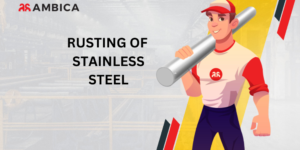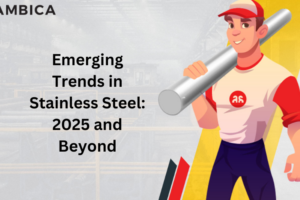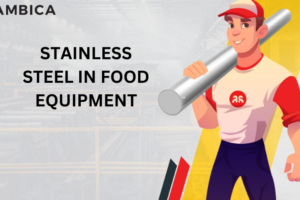 The admiral performance of Stainless steel is corrosion prevention action. The peculiarity dooms its relevance into the engineering applications.
The admiral performance of Stainless steel is corrosion prevention action. The peculiarity dooms its relevance into the engineering applications.
Stainless steel has the inherent property of corrosion resistance. Its ability to provide protection determines by the amount of chromium. It contains a minimum of 10.5 % chromium. The reaction between chromium and oxygen resulted in chromium oxide. The chromium oxide is a passive film that has a high affinity for its electron. It securely adhe99res to the metal surface. The established film of chromium oxide acts as a barrier and restraint oxygen and water accessibility into the metal. The famous rust-resistance capability of stainless steel is due to a thin film of chromium oxide.
Stainless steel can rust in adverse conditions. The corrosion attacks stainless steel when exposed to chemicals, moisture, and heat exposure for long times. It does not corrode quickly as it takes some time to affect. The stainless steel will rust or not depends on the chromium content and the kind of corrosive media exposed to the metal. If the chromium is not sufficient, a new protective layer of chromium oxide will not be formed near the top scratched layer. As a result, it will be susceptible to numerous kinds of corrosions. The types of corrosion are general, galvanic, inter-granular, pitting, crevice, stress corrosion cracking.
Some general causes of rusting are as:
- The presence of chlorides in the environment can cause pitting corrosion.
- Corrosion can be after the effect of welding. As the formation of carbide precipitation at the welding site can cause corrosion.
- Presence of plain steel or iron steel in stainless steel.
- Heating stainless steel at elevated temperature.
- Scaling is a common phenomenon, which stainless steel experience at high It can result in bimetallic corrosion. The stainless steel can lose the oxide layer at high temperatures unless the oxide layer can reform.
- Exposed environments.
To conclude, stainless steel is sufficiently able to produce resistance against corrosion. Its different types and grades should be employed according to the application. Stainless steel is sturdy, aesthetic, and widely used.
Ambica steels is an international brand and export a high range of stainless steel products worldwide. Our facility includes multi-unit plants that are equipped with advanced machines and skilled teams.




